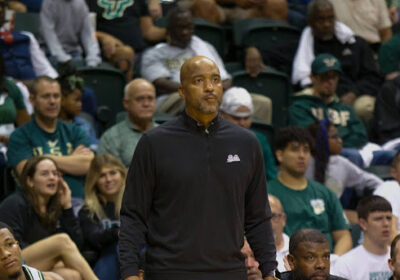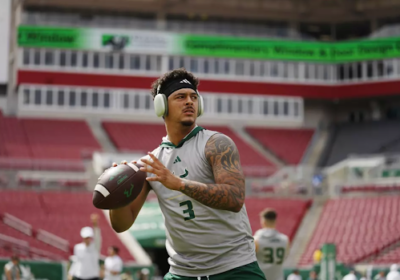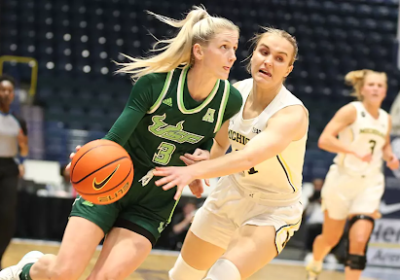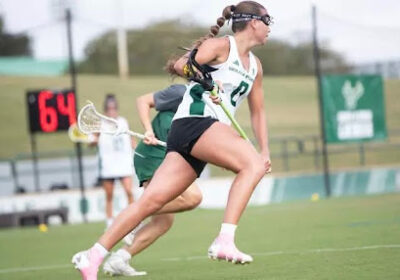Commentary: Sports cancellations and postponements were necessary, but still hurt
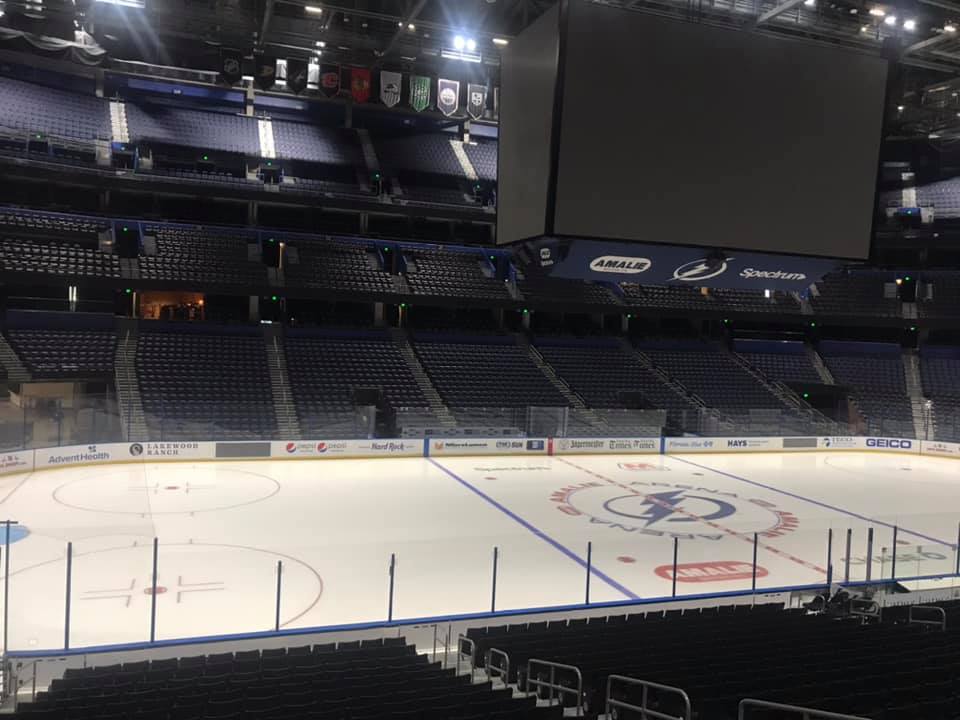
So, here we are, roughly two weeks after pretty much everything in sports was postponed, suspended or outright canceled due to the COVID-19 pandemic.
It’s been a weird experience, to say the least, not being able to turn the TV on and watch a live game, even just mindlessly to kill time. Tuning in to ESPN only to find a 30 for 30 documentary or FS1 just to find games from the 2018 World Cup in the middle of a weekend afternoon is a bit surreal.
It’s an especially weird experience doing this when you haven’t left your house in a week — and that was just to go to Publix. In fact, the last time I was out of the house for a meaningful period of time was March 13 to buy hand sanitizer at Bath & Body Works at University Mall and collect my personal belongings from the Oracle office.
But both of these difficult realities are for the best. It cannot be stressed enough that a person could be carrying and shedding the novel coronavirus, which causes COVID-19, and be completely asymptomatic. Packing stadiums and arenas — or even malls — is not worth jeopardizing your or anyone else’s health.
While it’s the right move for overall public health, it has come with unfortunate consequences. With the cancellation of the remainder of the college sports calendar, many athletes may have had their playing days cut unceremoniously short.
While the NCAA Division I Coordination Committee has come out in favor of granting eligibility relief for spring athletes, it’s not guaranteed yet. The NCAA will vote on the matter next Monday, and while it’s the right thing to do, there are still some things that need to be figured out, such as roster and scholarship limits and whether this would only apply to 2020 seniors.
The scholarship limit is especially important. The NCAA only allows 12 scholarships for softball teams, 11.7 for baseball teams and 4.5 for tennis and golf teams. If it doesn’t allow for some wiggle room, athletes may have to choose between walking away from an extra year of eligibility or paying for another year of school that they didn’t need or want.
There’s also the question of whether smaller schools, who might not have the money to pay for extra tennis scholarships, for example, will receive financial assistance for the extra costs of keeping their seniors an additional year.
Additionally, something must be figured out regarding the incoming freshmen who were set to take the roster spots of graduating seniors. A Division I baseball team has a 35-player limit, for example.
Even if the NCAA grants relief for spring sports, it doesn’t seem likely it will happen for winter athletes, like basketball and hockey. Unfortunately, because of the complexities that have to be solved to grant relief, this is the right move given when everything shut down.
Spring sports were just warming up. USF baseball and softball still had another weekend before conference play began and were only a month into their three-month seasons.
Basketball, for the most part, was done. Men had conference and postseason tournaments left, while women only had postseason tournaments to play.
Without brackets, though — or even autobids from conference tournaments for the men — there’s no way to know exactly which players were robbed of a final chance to compete for their schools nor is there any way to know how many games were taken away from a player without playing the tournaments.
What would the relief even look like? A full season seems like too much, but there doesn’t seem to be much room for middle ground.
It’s an unfortunate and rather unceremonious end for USF men’s basketball seniors Laquincy Rideau and Antun Maricevic, though they at least got to go out on a dramatic buzzer beater at home in the regular-season finale. Tamara Henshaw, the lone senior on the women’s team, also had a fitting moment to the end of her time at the Yuengling Center.
There’s no way to know what the future holds for any of the seniors across the country, but based on the odds, most have played their last competitive games, as professional opportunities typically tend to be fewer in number than those seeking jobs.
It’s also likely a number of professional athletes have played their last game, too — and just as unceremoniously. While most go out without pomp and circumstance already, if the rest of the NBA season winds up canceled, Vince Carter will likely go out without the sendoff the eight-time NBA All-Star and Olympic gold medalist has earned, as the 43-year-old Carter announced before the season the 2019-20 campaign would be his last. Something just doesn’t feel right about a viral pandemic ending the career of “Air Canada,” as he was called when he played for the Toronto Raptors, but it may come to that.
Speaking of Olympians, International Olympic Committee member Dick Pound told USA Today on Monday that the 2020 Tokyo Games will be postponed, likely to 2021. The IOC has yet to officially announce anything, but even the delay of a year could be critical, as time tends not to be on the side of certain athletes, like gymnasts, whose careers tend to end very young.
The Olympic postponement also hits home, as USF softball coach Ken Eriksen had been on leave to lead Team USA in the Summer Games.
With the postponement not even official, it’s far too early to answer the question of whether Eriksen will take another year of leave or return to USF, but it’s obviously going to be a tough decision — as was every decision to postpone or cancel events. These decisions rob people who have worked their entire lives for opportunities at glory, and it’s been heartbreaking to watch some of the reactions on social media.
They were the right decisions, though. This is an unprecedented time in history, and sports are simply not critical when dealing with a public health pandemic, especially one that requires us to keep our distance from each other. Sacrifices have to be made by everyone, and unfortunately, that includes those who don’t have time on their side, like athletes.
But it’s hard not to feel for every senior across the country who had their final season cut short, or for every professional who may have played their last game, or for the Olympians who have had their short windows to compete for gold closed just a little bit more.
This is just a moment in time, though. Hopefully, we will be back to normal sooner rather than later.
For now, stay well.

